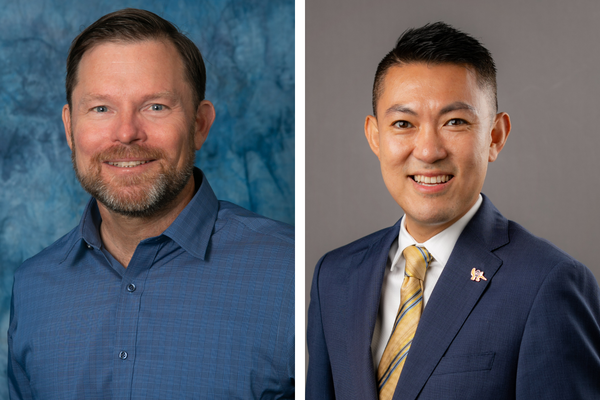
Life after cancer for many survivors entails following a care plan to stay healthy – both physically and emotionally. But for young adult survivors of childhood cancer, their care plan can be more complex as they navigate adulthood and the risks of developing other health issues over their lifespan. The reported prevalence of cancer-related cognitive impairment (CRCI) ranges between 10% and 40% among childhood, adolescent, and young adult cancer survivors. CRCI afflicts survivors with emotional and social dysfunction and this can negatively impact their employment, education and independent living.
In a study among young adult cancer survivors published in the JCO Oncology Practice, co-corresponding authors, Joel Milam, PhD, professor of epidemiology and biostatistics in UCI’s Program in Public Health and Alexandre Chan, PharmD, founding chair of clinical pharmacy practice for the UCI School of Pharmacy & Pharmaceutical Sciences, uncovered connections between CRCI and reports of vaping, which can influence long-term clinical care and outcomes.
There is an opportunity here to equip clinicians with these findings so that they can serve as mental health advocates and intervene during cancer-related follow-up visits.”
– Joel Milam, PhD
Psychological and emotional distress, associations with CRCI, are often key predictors of starting to smoke and drink alcohol. These risky lifestyle behaviors are frequently linked to poor health outcomes which can be detrimental to the survivorship care of young cancer survivors. Using a CRCI survey, Ding Quan (“Quinton”) Ng, first author of this study and a UCI doctoral student in Chan’s research lab, validated the relationship between CRCI, vaping and overall poorer outcomes. The survey cohort of 1,106 subjects was paired with cancer registry data on socioeconomic status, cancer type, age at diagnosis, and ethnicity. The findings suggest that YACCSs face substantial challenges in coping with their cognitive and related complications as well as poor mental health, potentially leading to self-medication with vaping to improve concentration.
“There is an opportunity here to equip clinicians with these findings so that they can serve as mental health advocates and intervene during cancer-related follow-up visits,” says Milam. “With more than 500,000 childhood cancer survivors, research is needed to better understand the risks/benefits of vaping among young cancer survivors.”